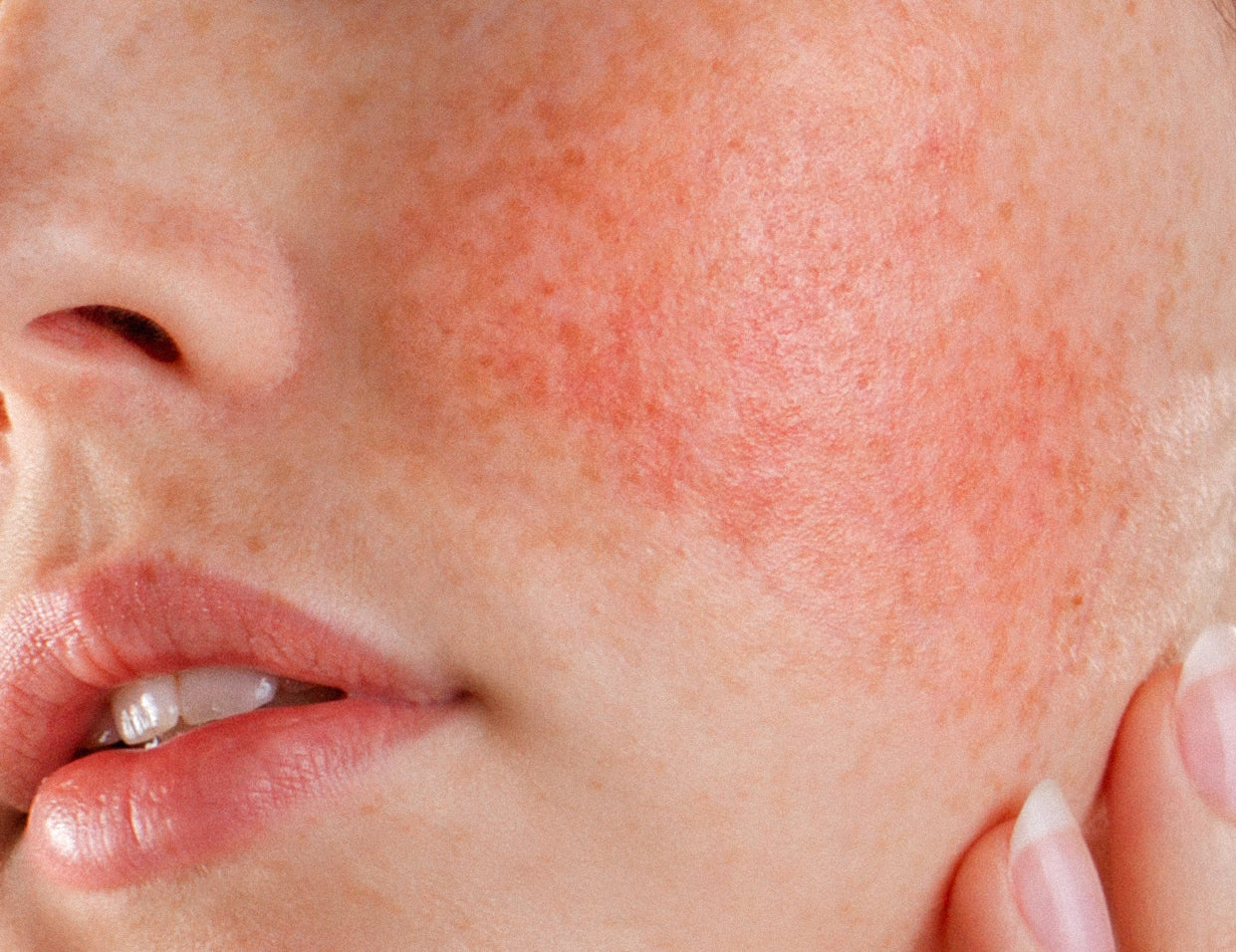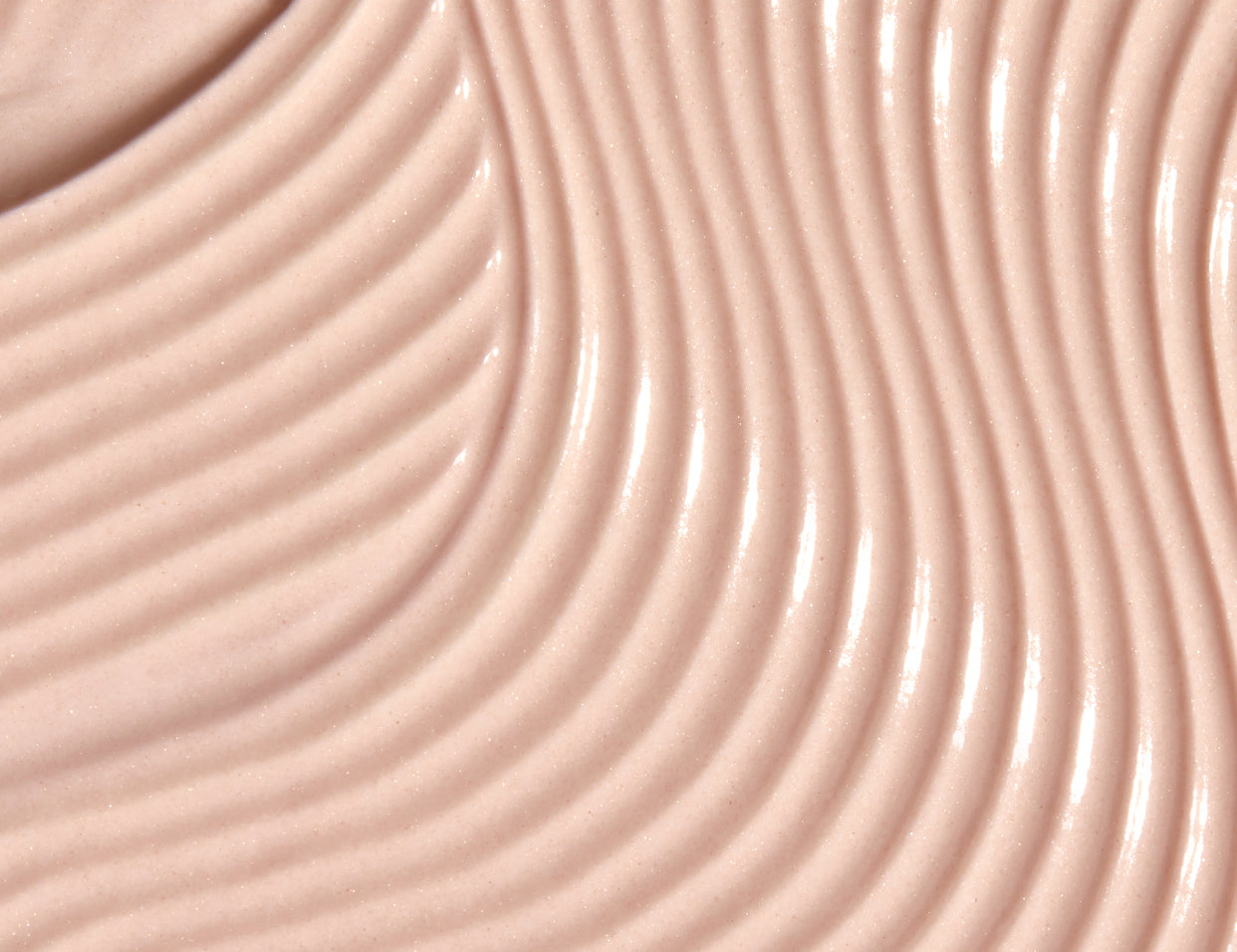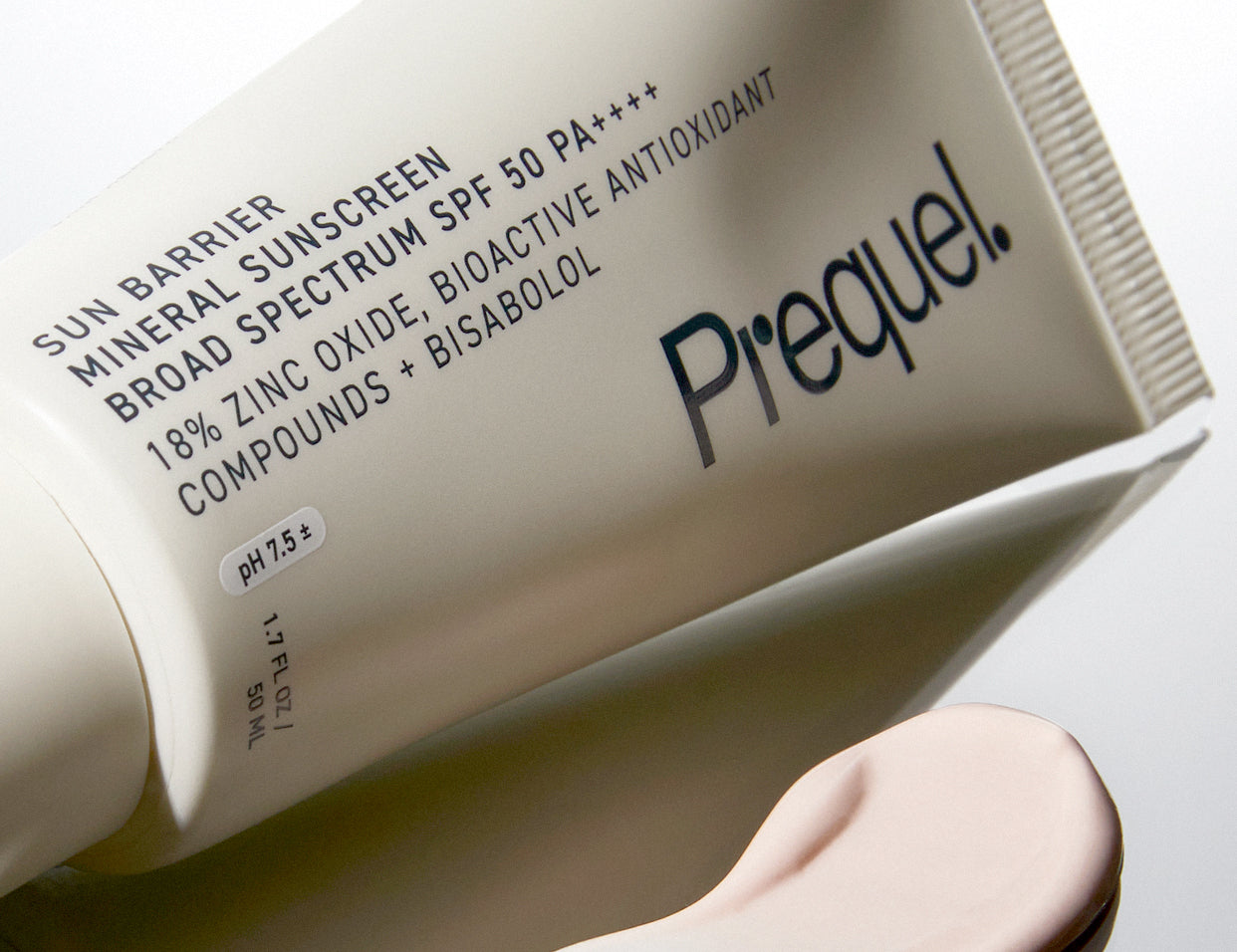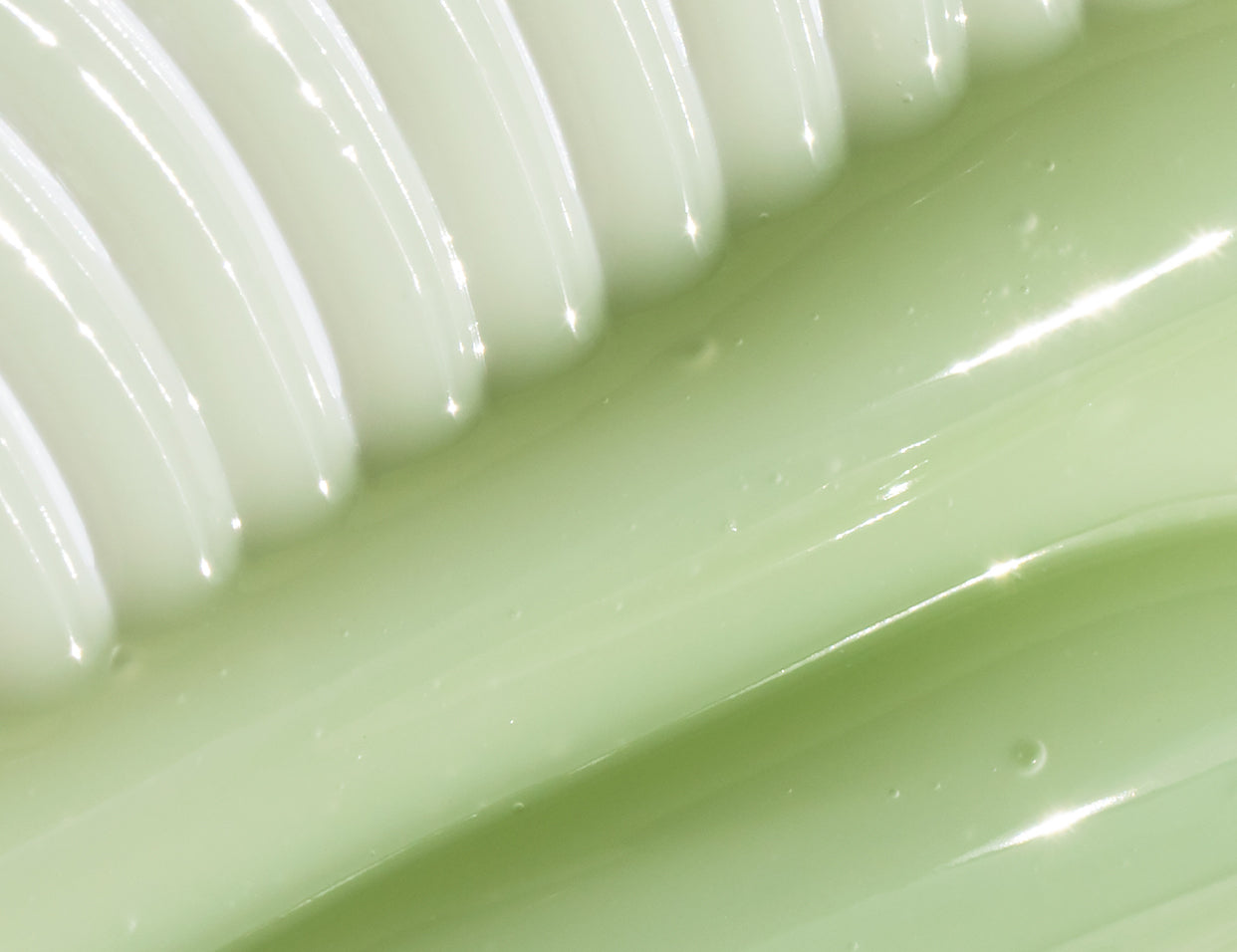Rosacea may be a lifelong condition, but with the right approach, it can be effectively managed to improve your skin's health and appearance. By understanding your triggers, using appropriate skincare products, and seeking guidance from a dermatologist, you can lead a more comfortable and confident life with rosacea. Today, we'll dive into understanding rosacea and the “do's” and “don'ts” for managing this chronic but treatable skin condition.
What is Rosacea?
Rosacea is a skin condition that affects millions of people worldwide. It's a persistent inflammatory condition of facial skin. Though it's treatable, there's no definitive cure for rosacea. The goal of rosacea management is to keep it under control, preventing it from affecting your daily life and keeping your skin happy.
Symptoms of Rosacea
Rosacea presents with redness and easily-irritated skin, often accompanied by flushing, visible blood vessels on the skin, pimples and/or prominent skin texture, dryness, and occasionally itching and eye discomfort. When someone has pimples as part of their rosacea, it can even be mistaken for acne.
Understanding Rosacea Subtypes
Previously, rosacea was categorized into four subtypes: erythematotelangiectatic rosacea (facial redness and flushing), papulopustular rosacea (red bumps or pustules), phymatous rosacea (thick, bumpy skin), and ocular rosacea (rosacea involving the eyes). However, we now know that symptoms can overlap, making each person's experience unique.
Rosacea Management: The DOs
Consult a Dermatologist: If you notice persistent redness or bumps on your face, seek a professional diagnosis from a dermatologist. An accurate diagnosis is crucial for effective treatment.
Identify and Avoid Triggers: Keep track of potential triggers such as sun exposure, extreme temperatures, stress, alcohol, and certain foods. Avoiding triggers can help manage your rosacea.
Embrace Sun Protection: Shield your skin from harmful UV rays by wearing wide-brimmed hats and applying sunscreen daily. Choose a sunscreen that suits your skin type; both mineral-based sunscreens and those with “chemical” UV filters are safe for those with rosacea.
Prioritize Moisturization: Rosacea sufferers may have compromised skin barriers, making moisturization essential. Find a gentle moisturizer that works for you and use it regularly.
Set Realistic Expectations: Understand that rosacea is a chronic condition, and the goal is to manage it effectively, not eliminate it entirely. Focus on incremental improvements for a happier skin journey.
Rosacea Management: The DON'Ts
Avoid Extreme Temperatures: Be cautious with temperature extremes, as hot weather and indoor heating can trigger flares.
Gentle Care, No Rubbing or Scrubbing: Avoid physical exfoliation or harsh rubbing, as they can worsen redness and irritation. Instead, pat your face dry gently.
Simplify Your Skincare: Limit the number of products in your skincare routine, especially when incorporating prescription topical medications. Avoid potential irritants and be patient when introducing new products.
Mindful Skincare Ingredients: While not every person with rosacea is sensitive to the same ingredients, some common irritants include alcohol, witch hazel, fragrance, menthol, peppermint oil, and eucalyptus oil. Patch test new products before full usage.
Consider Prescription Medications: Don't hesitate to explore prescription medications specifically designed for treating rosacea. They can offer effective solutions for managing symptoms.
Stay Hopeful and Consult a Dermatologist: If you're struggling to control your rosacea, don't lose hope. Partner with a dermatologist who can guide you through your unique journey, and keep an eye out for emerging treatments.
Living with rosacea doesn't have to be a constant battle. With the right knowledge and strategies, you can effectively manage this chronic skin condition and improve your skin's health and appearance. There's also no need to navigate this journey alone – a dermatologist's expertise can be invaluable in tailoring a personalized treatment plan for your unique needs.
By embracing the do's and avoiding the don'ts outlined in this comprehensive guide to rosacea, you can take charge of your rosacea journey and lead a more comfortable and confident life. Identifying and avoiding triggers, such as sun exposure and stress, can significantly reduce flare-ups and irritation. Embracing sun protection, prioritizing moisturization, and setting realistic expectations will contribute to your journey towards healthier and happier skin.
DISCLAIMER: All skin care articles are intended to help educate on specific ingredients and skin care topics. Our articles are written to be informative and informational. Any reference to a specific patient experience is not a medical suggestion for treatment. Please note that any Prequel products with referenced ingredients are formulated for Cosmetic Use Only and NOT intended as replacements for physician advice and/or pharmaceutical product recommendations.




